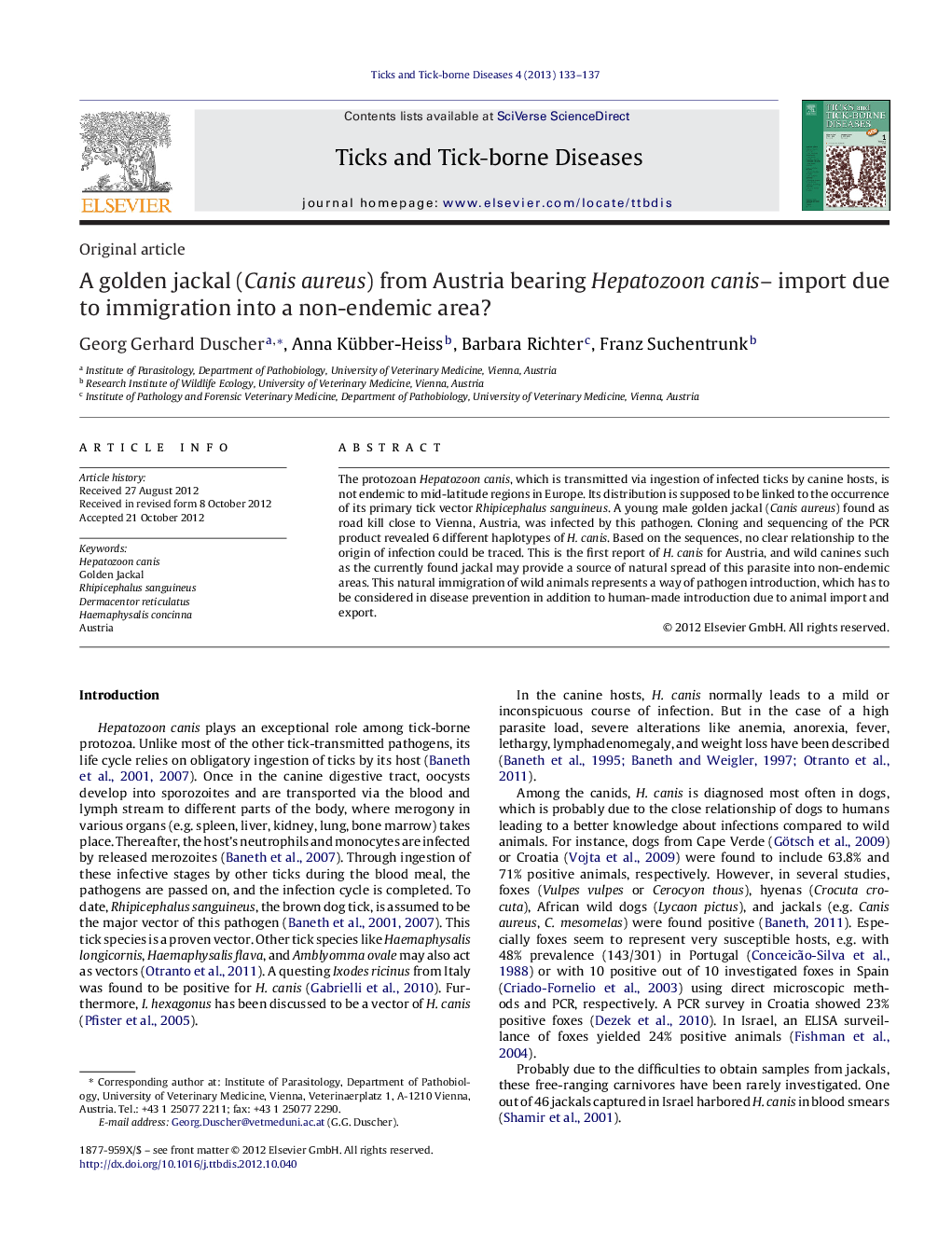| Article ID | Journal | Published Year | Pages | File Type |
|---|---|---|---|---|
| 2474241 | Ticks and Tick-borne Diseases | 2013 | 5 Pages |
The protozoan Hepatozoon canis, which is transmitted via ingestion of infected ticks by canine hosts, is not endemic to mid-latitude regions in Europe. Its distribution is supposed to be linked to the occurrence of its primary tick vector Rhipicephalus sanguineus. A young male golden jackal (Canis aureus) found as road kill close to Vienna, Austria, was infected by this pathogen. Cloning and sequencing of the PCR product revealed 6 different haplotypes of H. canis. Based on the sequences, no clear relationship to the origin of infection could be traced. This is the first report of H. canis for Austria, and wild canines such as the currently found jackal may provide a source of natural spread of this parasite into non-endemic areas. This natural immigration of wild animals represents a way of pathogen introduction, which has to be considered in disease prevention in addition to human-made introduction due to animal import and export.
